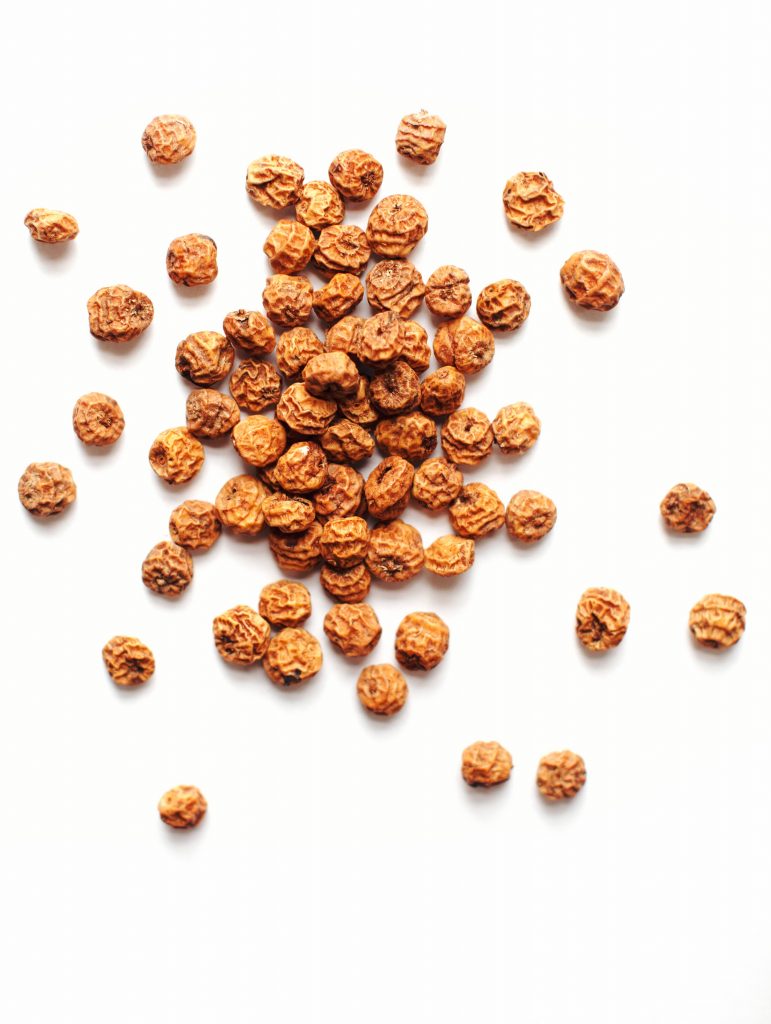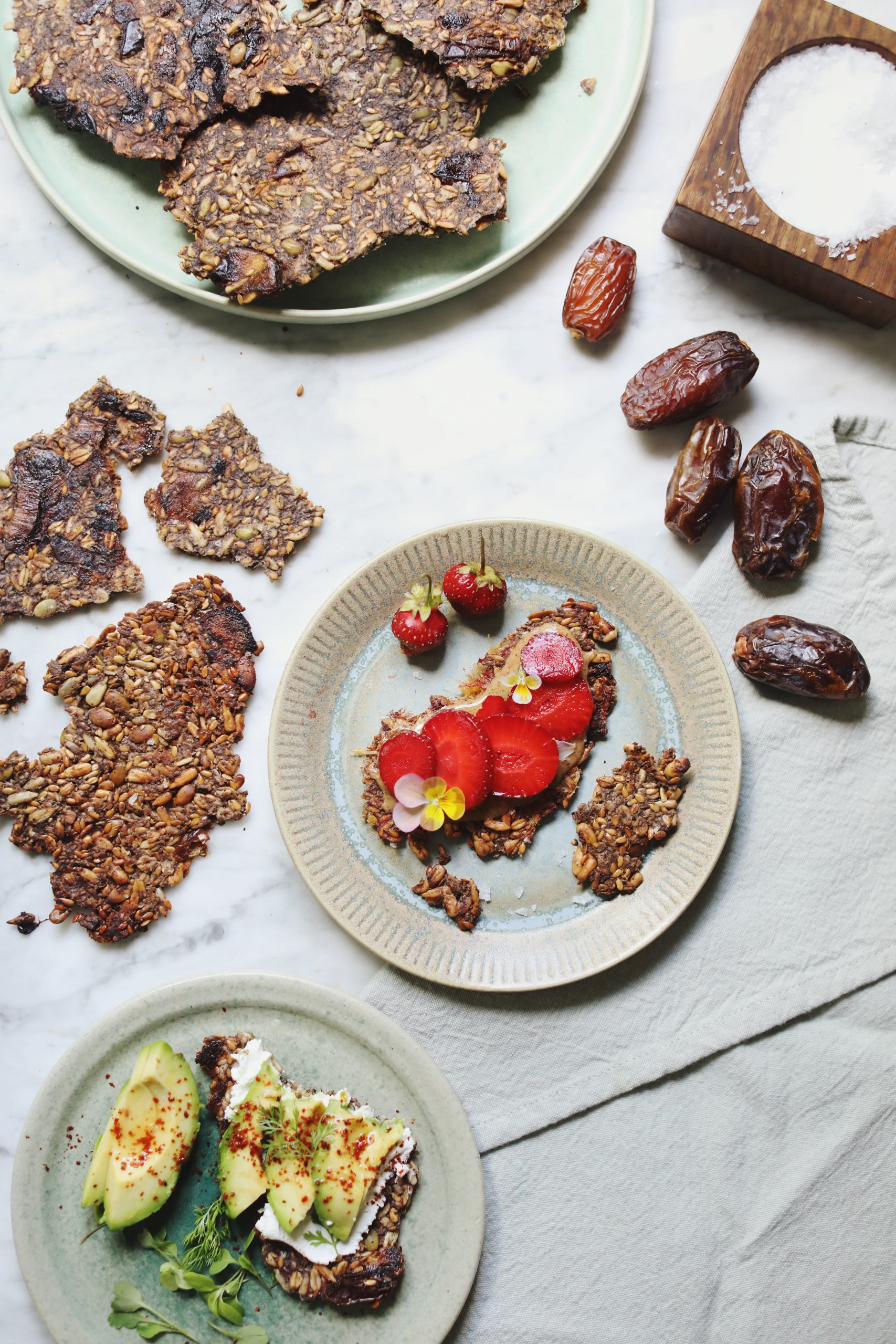Tigernuts, Chufa, of Earth almonds… these delicious, high-fiber, marble-sized orbs are in fact not nuts at all, but a tuberous rhizome of a grass that’s been cultivated for thousands of years!
The earliest records of tigernut use date back to Neolithic Egypt. From there, their cultivation spread to North Africa and the Iberian Peninsula. The Spanish have been using tigernuts to make horchata (a creamy spiced beverage) since the 18th century where they are referred to as “chufa.”
Typically recipes for horchata include lemon and cinnamon, and wow is this combo ever delicious. It’s so sweet without any additional sugars, creamy and smooth beyond my wildest dreams, and full of nutrients. This liquid gold is perfect in smoothies, coffee, tea, and baked goods. It’s even delicious over ice, all on its own — try making your own!
- Rich in magnesium, potassium, and iron
- High-fibre food
- They also contain beneficial fatty acids, like those in olive oil or avocado oil.
Whole and ground tigernuts are very high in resistant starch, a unique type of fibre that passes through the stomach and small intestine without being digested, and acts as a prebiotic, feeding the good bacteria in your gut. Tigernut flour can be used in pancakes, muffins, breads and loaves, cakes, and cookies.
You can source tigernuts at most health food stores, and of course online – for anyone living in North America, my favourite place to buy online is Adda Blooms!

About Nuts
Nuts and seeds are concentrated, high-energy foods that are always good to have on hand in your pantry. Nuts and seeds are typically the best sources of vitamin E and plant-based essential fatty acids.
Nuts and seeds are healthiest consumed after they have been soaked for some hours to improve their digestibility and increase their nutritional value. Raw, unsprouted nuts and seeds are difficult to digest.
Buying
It is best to buy nuts and seeds in the shell whenever possible, as this is their natural packaging. Stores this way they will keep for up to one year. To ensure quality, visit a shop you know has a high turnover to ensure freshness and taste the nuts before purchasing. Purchase organic whenever possible, as pesticides and toxins tend to accumulate in high fat food, such as nuts and seeds. Never buy roasted nuts and seeds, or those processed with oil, salt, sugar, or other additives. Roasted nuts and seeds contain rancid fats and are a source of harmful free radicals. Nuts and seeds should always be purchased raw and toasted at home if desired.
Storing
Store hulled nuts and seeds in glass containers in a dark, cool place – heat and light speed up oxidation. Hulled nuts will keep at room temperature for one to three months. The fridge is an idea place as it is both cold and dark; storing here will ensure freshness for up to six months. Do not store nuts in plastic.



